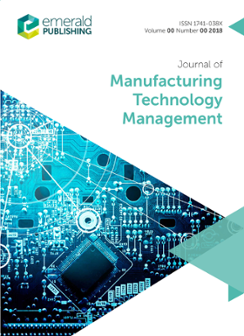在回岸期间主机发生了什么?东道主公司在中国的应对探索
IF 7.3
2区 工程技术
Q1 ENGINEERING, INDUSTRIAL
引用次数: 0
摘要
关于离岸外包和回流的研究主要集中在母国公司,广泛忽视了东道国的离岸公司。主办公司的影响力和贡献是看不见的。本研究探讨东道国公司如何回应母国公司的选址决策,以维持二元关系。设计/方法/方法在中国进行了一项探索性案例研究,以考察东道国公司对回流的反应。该公司有两家日本母公司,它们代表了回流驱动因素的出现。通过专题分析收集一手和二手数据并进行分析。确定并探讨了东道国公司对东道国公司搬迁决策的应对策略。研究结果表明,东道国公司实施了四种策略,即成本控制、市场扩张、寻求知识和建立关系。这些战略也强调了工业4.0和知识转移的重要性。实际意义本研究确定了东道国公司为维持与母国公司的合作关系而采取的积极和实用的策略。与其遇到东道国公司的被动回应,母国公司可以考虑与东道国合作,克服新出现的回流驱动因素造成的困难,并创造一个对双方都有利的结果。原创性/价值据作者所知,这是第一次从东道国的角度来研究制造业回流。它为理解这一现象提供了一个新的视角。本文章由计算机程序翻译,如有差异,请以英文原文为准。
What happens with the host during reshoring? An exploration of the host company's response in China
PurposeResearch studies on offshoring and reshoring have predominantly focused on the home company, widely ignoring the offshored company in the host country. The host company's influence and contribution have been unseen. This research explores how the host company responds to the home company's location decisions to maintain the dyadic relationship.Design/methodology/approachAn exploratory case study in China was conducted to examine the host company's response to reshoring. The case company has two Japanese parent companies that acted for the emergence of reshoring drivers. Primary and secondary data were collected and analysed through thematic analysis. The host company's response strategies to the home company's relocation decisions were identified and explored.FindingsThe findings reveal that four strategies, identified here as being cost control, market expansion, knowledge seeking and relationship bonding, were implemented by the host company. The importance of Industry 4.0 (I4.0) and knowledge transfer is also emphasised within these strategies.Practical implicationsThis research identified active and practical strategies conducted by the host company to maintain a cooperative relationship with the home company(ies). Instead of encountering a passive response from the host company, the home company may consider working with the host to overcome difficulties caused by emerging reshoring drivers and create an outcome beneficial to both.Originality/valueTo the authors’ knowledge, this is the first research to study manufacturing reshoring from the perspective of the host company. It provides a new perspective to understanding this phenomenon.
求助全文
通过发布文献求助,成功后即可免费获取论文全文。
去求助
来源期刊

Journal of Manufacturing Technology Management
Engineering-Control and Systems Engineering
CiteScore
16.30
自引率
7.90%
发文量
45
期刊介绍:
The Journal of Manufacturing Technology Management (JMTM) aspires to be the premier destination for impactful manufacturing-related research. JMTM provides comprehensive international coverage of topics pertaining to the management of manufacturing technology, focusing on bridging theoretical advancements with practical applications to enhance manufacturing practices.
JMTM seeks articles grounded in empirical evidence, such as surveys, case studies, and action research, to ensure relevance and applicability. All submissions should include a thorough literature review to contextualize the study within the field and clearly demonstrate how the research contributes significantly and originally by comparing and contrasting its findings with existing knowledge. Articles should directly address management of manufacturing technology and offer insights with broad applicability.
 求助内容:
求助内容: 应助结果提醒方式:
应助结果提醒方式:


